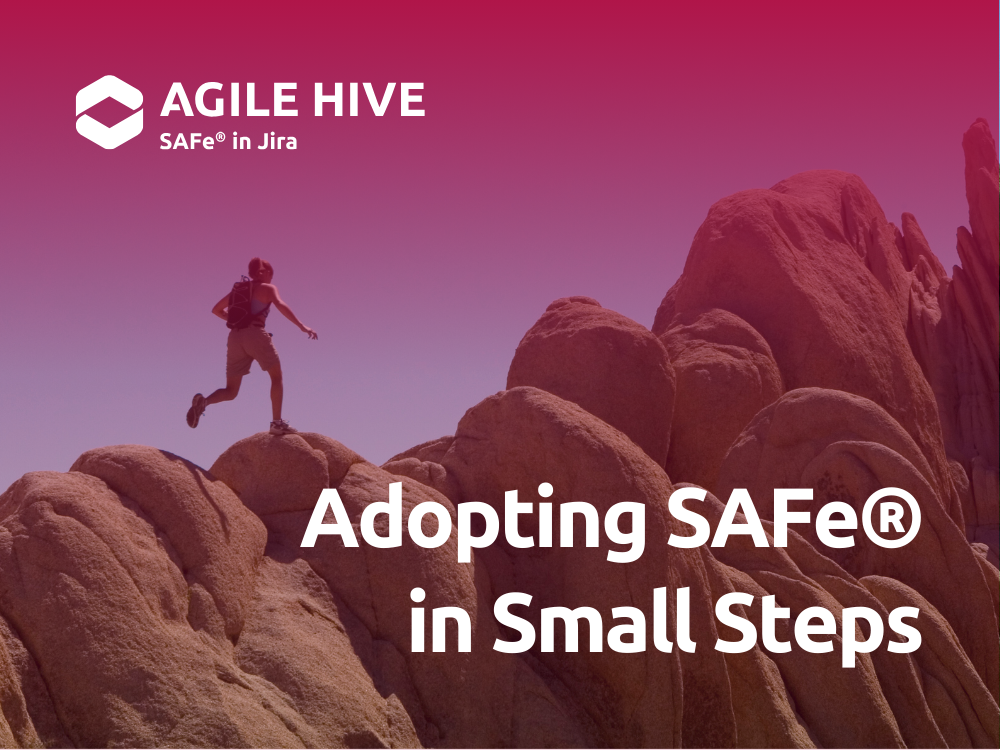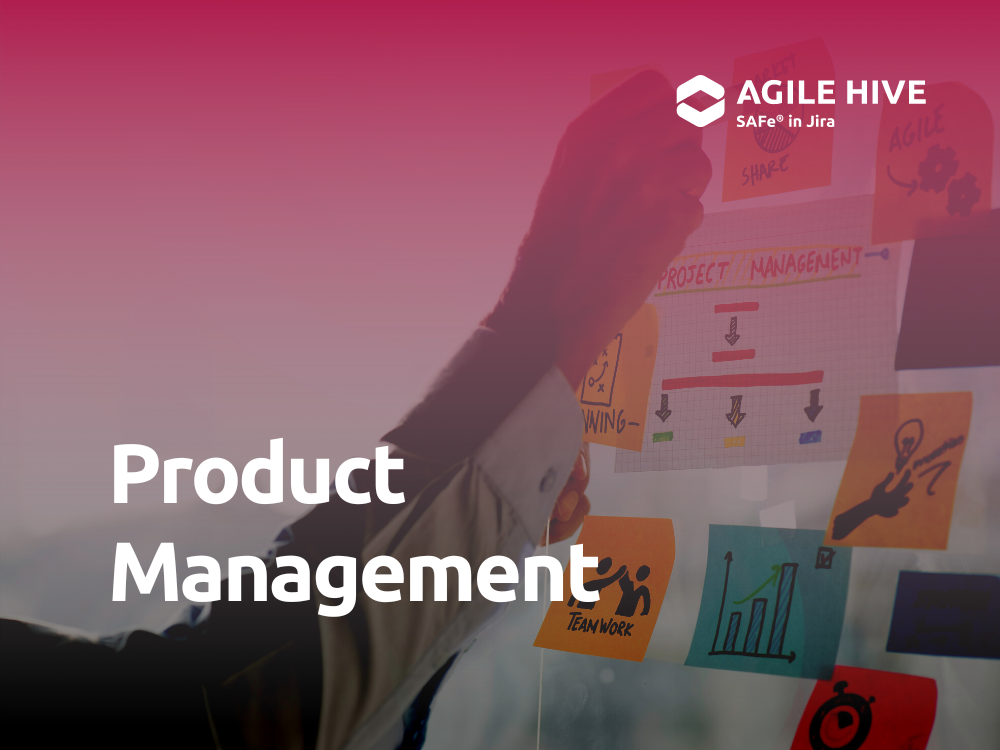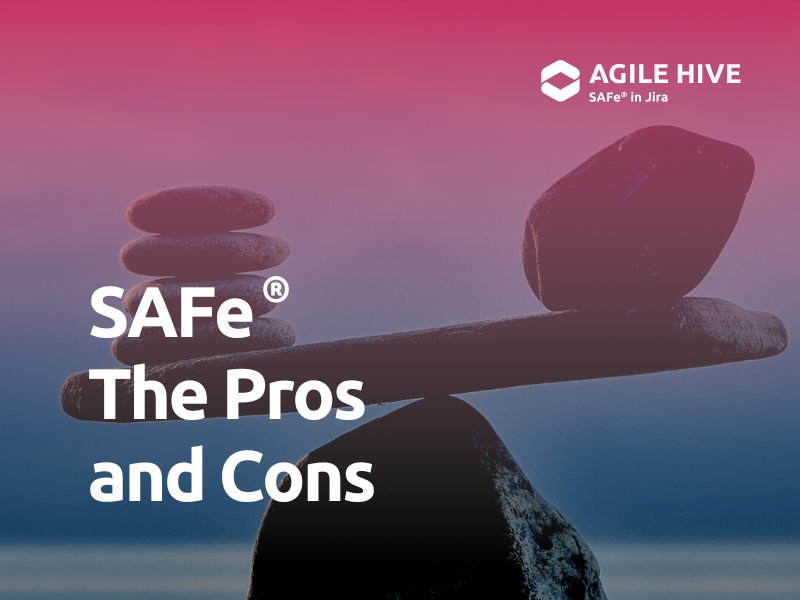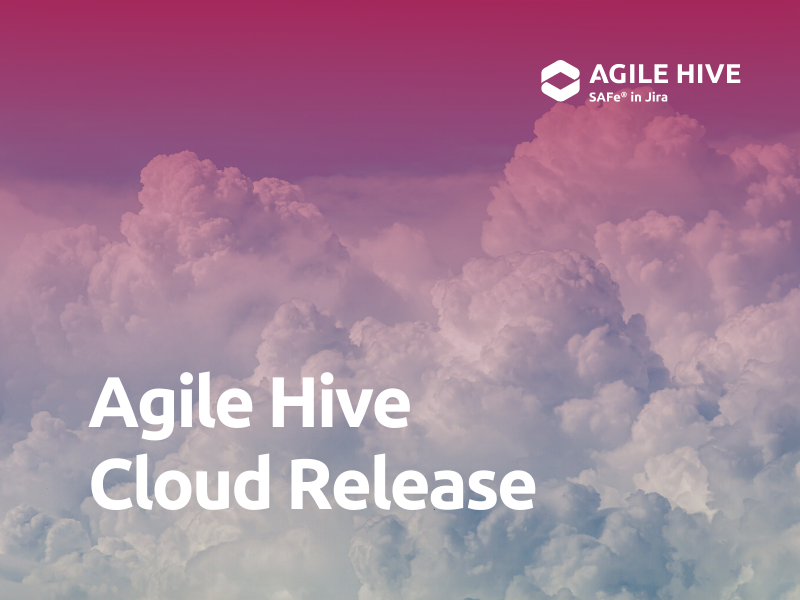- Joshua Brock
Adopting SAFe® in Small Steps
- SAFe
Scaled Agile Framework (SAFe®) takes Agile and Lean principles and implements them at an enterprise or large organization level to increase and drive efficiencies, meet the requirements of stakeholders, and improve customer satisfaction. However, it’s not just supersizing established practices that worked at the team level, there’s an ART (pun intended) to it. This article explores the benefits and processes of making the transition via smaller steps rather than one giant leap.

- SAFe
Product Management Using Scaled Agile Framework (SAFe®)
This role-focused article is one in a multi-part series that examines how Agile Hive supports various roles in an organization leveraging the Scaled Agile Framework (SAFe®) for better outcomes.
- SAFe
SAFe Summit 2023 Prague – That’s A Wrap!
Our Agile Hive team had an incredible experience attending this year’s SAFe® Summit, held May 15-17 in the storied city of Prague, in the Czech Republic.
- SAFe
How To Always Be One Step Ahead with SAFe® 6.0 and Agile Hive
In this article, we’ll be discussing when an organization has undertaken the transformation to Scaled Agile Framework (SAFe®) and specifically how Agile Hive can not just enable, but empower this process each step of the way.
- SAFe
SAFe® – The Pros and Cons for Scaling Agile
In this article we will be looking specifically at SAFe® - Scaled Agile Framework®, which is a set of organizational and workflow processes for implementing agile practices at an enterprise scale.
- SAFe
Agile Hive Cloud Release
Agile Hive is proud to announce, after months of development, refinement, and customer testing, that our “SAFe® in Jira” solution is now available for Jira Cloud via the Atlassian Marketplace!
- SAFe
European SAFe® Summit 2023 – Prague, Czech Republic
Meet the Agile Hive team at the European SAFe® Summit 2023 in Prague, Czech Republic! Learn firsthand from SAFe® experts, May 15-17.
- SAFe
Product Management Using Scaled Agile Framework (SAFe®)
This role-focused article is one in a multi-part series that examines how Agile Hive supports various roles in an organization leveraging the Scaled Agile Framework (SAFe®) for better outcomes.
- SAFe
SAFe Summit 2023 Prague – That’s A Wrap!
Our Agile Hive team had an incredible experience attending this year’s SAFe® Summit, held May 15-17 in the storied city of Prague, in the Czech Republic.
- SAFe
How To Always Be One Step Ahead with SAFe® 6.0 and Agile Hive
In this article, we’ll be discussing when an organization has undertaken the transformation to Scaled Agile Framework (SAFe®) and specifically how Agile Hive can not just enable, but empower this process each step of the way.
- SAFe
SAFe® – The Pros and Cons for Scaling Agile
In this article we will be looking specifically at SAFe® - Scaled Agile Framework®, which is a set of organizational and workflow processes for implementing agile practices at an enterprise scale.
- SAFe
Agile Hive Cloud Release
Agile Hive is proud to announce, after months of development, refinement, and customer testing, that our “SAFe® in Jira” solution is now available for Jira Cloud via the Atlassian Marketplace!
- SAFe
European SAFe® Summit 2023 – Prague, Czech Republic
Meet the Agile Hive team at the European SAFe® Summit 2023 in Prague, Czech Republic! Learn firsthand from SAFe® experts, May 15-17.





